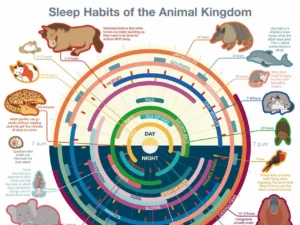Drinking an energy drinks are a popular choice for those seeking a quick boost in energy and alertness. However, the effects of these beverages on the body can be quite profound and long-lasting. This article explores what happens to your body within 24 hours of consuming after drinking an energy drink, from the initial buzz to the withdrawal symptoms.

Immediate Effects (0-1 Hour)
10 Minutes
Within the first ten minutes of consuming an energy drink, the caffeine begins to enter your bloodstream. This leads to an increase in both heart rate and blood pressure as your body starts to react to the stimulant.
15-45 Minutes
This is the period during which the caffeine levels peak in your bloodstream. You’ll likely feel more alert and focused as the stimulant effects take hold, enhancing both your concentration and awareness.
30-50 Minutes
At this point, the caffeine is fully absorbed into your bloodstream. Concurrently, your liver starts to absorb more sugar, contributing to a spike in energy levels.
1 Hour
About an hour after consumption, you may experience a “sugar crash.” This occurs as the effects of the caffeine begin to wear off, and also your energy levels start to decline. Feelings of tiredness and a drop in alertness are common during this phase.
Medium-Term Effects (5-12 Hours)
5-6 Hours
This timeframe marks the half-life of caffeine, meaning that it takes about 5 to 6 hours for your body to reduce the caffeine content in your bloodstream by 50%. For women on birth control pills, this duration can be doubled, extending the time it takes for the caffeine to diminish.
12 Hours
For most people, it takes around 12 hours for the caffeine to be completely eliminated from the bloodstream. However, this can also vary based on individual factors such as age, activity level, and overall health.
Long-Term Effects (12 Hours – 7 Days)
12-24 Hours
Regular consumers of caffeine may start to experience withdrawal symptoms within 12 to 24 hours after their last intake. These symptoms can include headaches, irritability, and constipation, as the body adjusts to the absence of the stimulant.
7-12 Days
Studies suggest that it takes about 7 to 12 days for the body to become tolerant to regular caffeine consumption. Over time, this can also lead to diminished effects, requiring higher doses to achieve the same level of alertness.
Is It Good or Bad to Drink Energy Drinks?
The debate over the health impacts of energy drinks is ongoing. Here are some key points to consider:
Pros
Energy drinks, like Red Bull, adhere to the guideline maximum of 400 milligrams of caffeine per day, with a typical 250ml can containing around 80 milligrams.
They provide a quick and convenient boost in energy and also mental alertness, which can be beneficial in moderation.
Cons
Energy drinks are high in sugar and calories, and also contain various other ingredients that can also lead to adverse health effects, such as anxiety, stomach upsets, dehydration, and also increased heart rate.
In the U.S., emergency room visits related to energy drink consumption doubled from 2007 to 2014, highlighting potential health risks.
Comparatively, energy drinks contain less caffeine than some popular coffee beverages, such as a Starbucks Venti Caffe Americano, which contains 300 milligrams of caffeine.
Conclusion
As with many things in life, moderation is key. Energy drinks can be a useful tool for boosting energy and alertness when consumed responsibly as part of a balanced diet. However, it is essential to be mindful of their potential health risks and also to avoid excessive consumption.







![200+ Ways To Make Money Online [InfoGraphic]](https://samplevisualization.com/wp-content/uploads/2014/08/200-Ways-To-Make-Money-Online-InfoGraphic-feature-image-300x225.webp)


